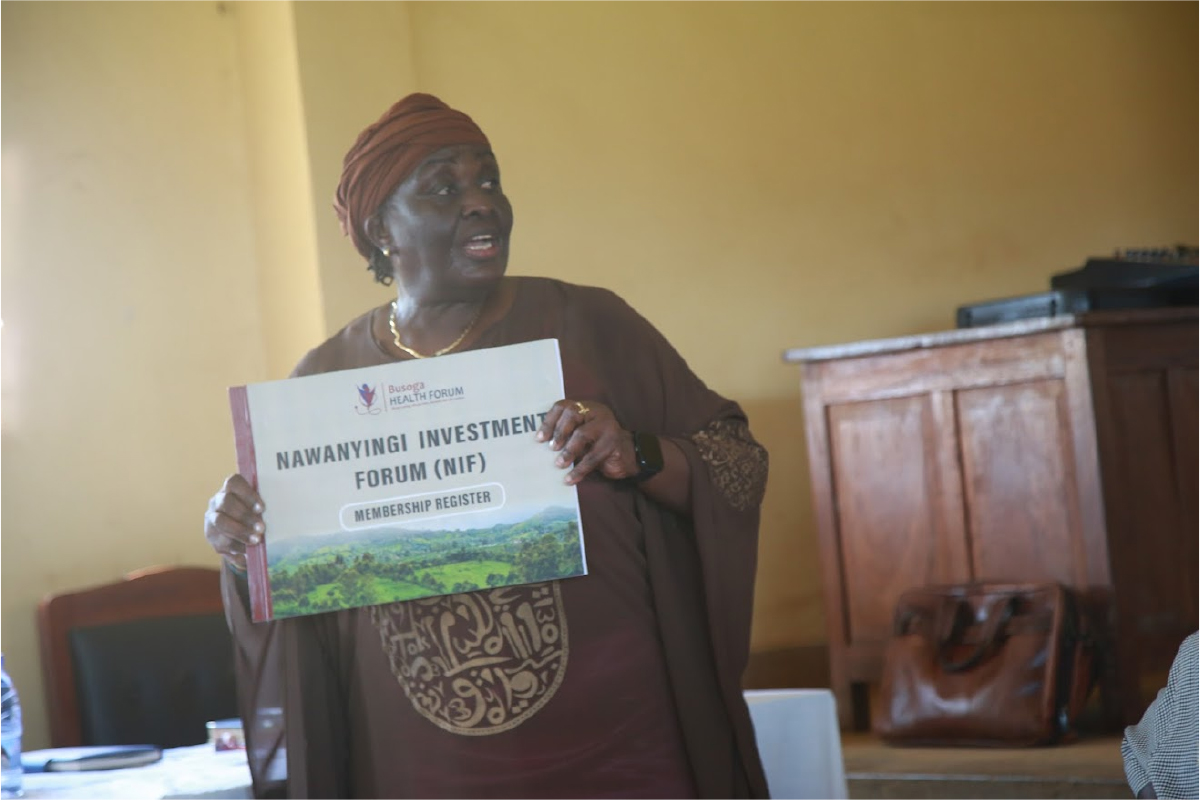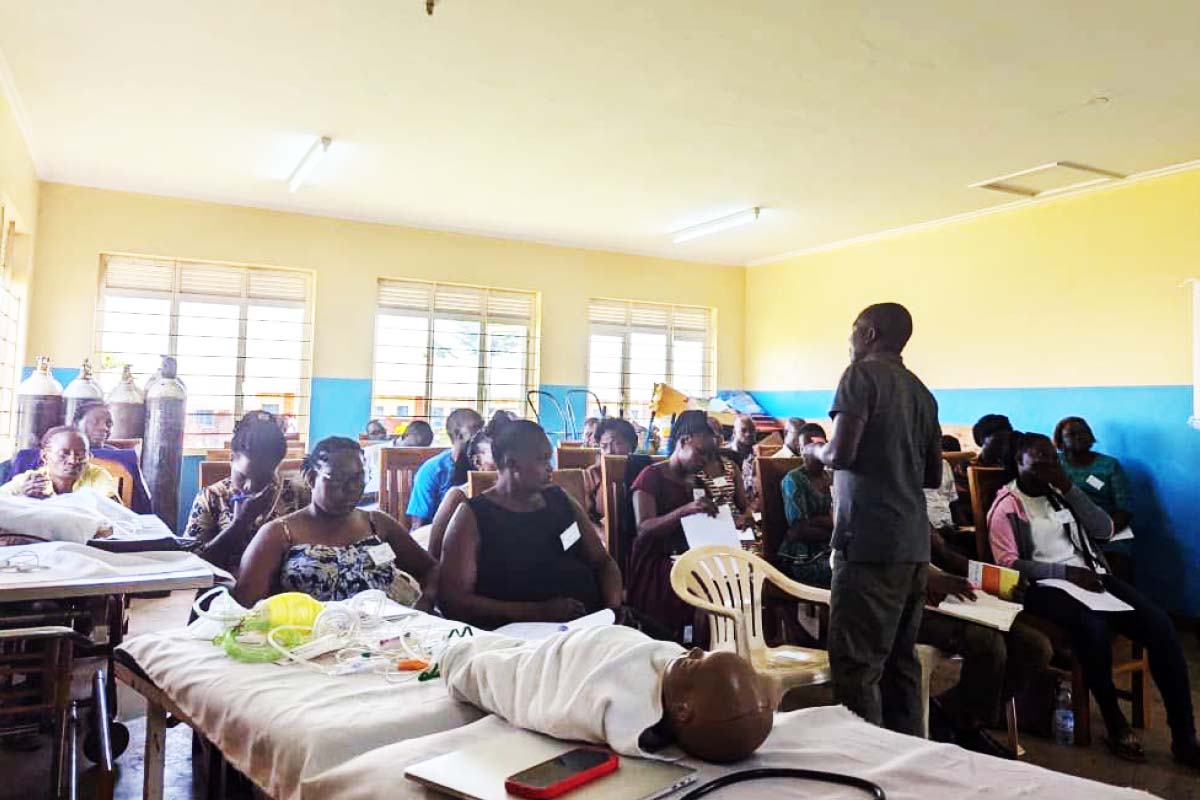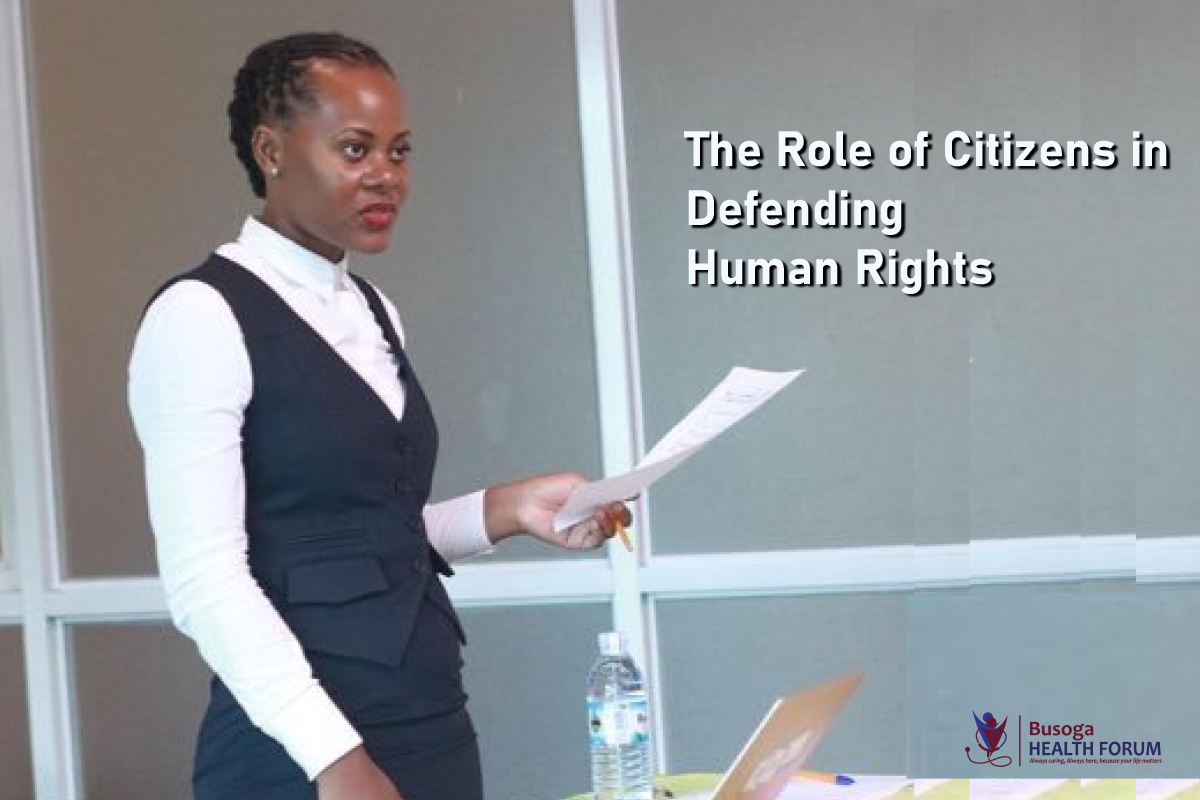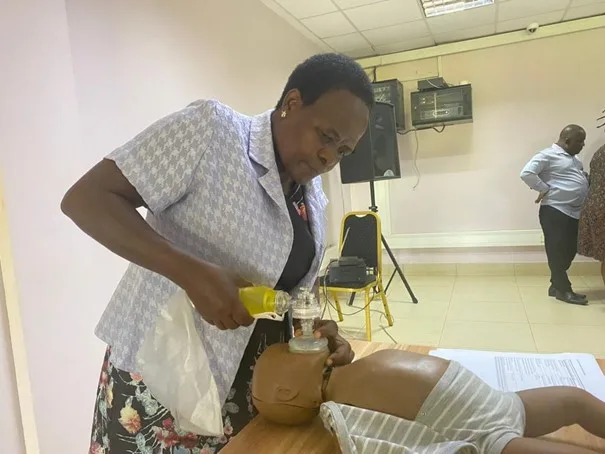
Busoga Leaders Join Efforts to End Malaria
By: Tatumwa Desmond Benjamin
Busoga Health Forum, under the leadership of their advisor Dr. Spesiosa Wandira Kazibwe, the former Vice President of Uganda, has embarked on efforts to eradicate malaria in Busoga. According to WHO, Uganda has the world’s highest malaria incidence rate of 478 cases per 1,000 people per year. It is also the leading cause of sickness and death in Uganda, responsible for up to 40% of all outpatient visits, 25% of hospital admissions, and 14% of all hospital deaths. The malaria death rate in Uganda is estimated to be between 70,000 and 100,000 deaths per year, a toll that exceeds that of HIV/AIDS.
The Eastern Central region, where Busoga is located, has persistently been a high-burden zone for over a decade. In 2009, it had the second highest incidence at 57%, in 2014 it was the highest at 37%, and in 2019, it was the third highest at 21%. This background led to the region being included among the priority high-burden zones targeted for accelerated reduction in the Uganda Malaria Reduction and Elimination Strategic Plan 2021-2025. Alongside West Nile and Karamoja, Busoga was supported through a malaria reduction activity by PMI to implement routine malaria control interventions with a special focus on surveillance, private sector service delivery strengthening, and case management at health facilities. High-impact interventions were also implemented, including indoor residual spraying (IRS) in 13 districts of West Nile and 2 districts of Busoga (Bugiri and Namutumba). Seasonal malaria chemoprevention was carried out in Karamoja. However, several Busoga districts continue to register significant malaria incidence, notably Buyende, Kaliro, and Luuka, with incidence rates between 450 and 750 per 1,000.
The region consistently records the highest incidence rates, surpassing the set targets for all age groups: under 5 years (450/1,000), 5-9 years (320/1,000), 10-19 years (300/1,000), and over 20 years (210/1,000). This indicates that infections and transmission remain high, and so do population parasite levels. Therefore, to eliminate malaria, as committed by the Busoga Health Forum and regional leadership, it is essential to decrease population-level parasitemia to strengthen transmission interruption and reduce infection, morbidity, and mortality through spraying and malaria mass drug administration, following WHO and Ministry of Health guidelines.
Given the high transmission in the region, mass screening, testing, and treatment are crucial alongside IRS. This approach significantly reduces transmission by decreasing the community parasite mass. This should accelerate burden reduction, but it is also vital that other interventions like surveillance, treatment at health facilities and communities, and vector control measures, especially ownership and use of long-lasting insecticidal nets, are optimized to consolidate the gains of IRS with mass screening, testing, and treatment, moving the region toward elimination.
Dr. Speciosa Wandira Kazibwe, in a meeting with Chief Administrative Officer of Iganga Mr. Bategenya Iddi, Resident District Commissioner Mr. Wandera Saidala, Deputy RDC Mr. Mwenje Eddy, DISO Mr. Balirunu Fred, and other leaders, highlighted the impact of malaria on the community. She stated, “We have the most fertile women because of the food we eat in this community. We are producing, but the land is not increasing. Fifty percent of our people are infected with malaria. If they contract the disease, they cannot work, which affects not only them but also causes government losses in its programs such as PDM. These individuals cannot utilize their land, ending up renting it to sugar cane growers. Children will also be unproductive at school due to a lack of concentration. Mosquitoes are not a problem for humans because they play a significant role in pollinating our crops; the problem is us, who have the parasites in us.”
In the same meeting, Mr. Moses Kyangwa, the CEO of Busoga Health Forum, emphasized the unique approach of involving leaders to disseminate information and knowledge to the people, as knowledge gives them dignity. He informed that this was not the first meeting; the Busoga Health Forum had already engaged with religious leaders, cultural leaders, district health technical teams, district community development officers, and district education officers to spread this message. “We have brought technical people on board, and they are aware of our intervention,” he said.
The primary focus of their efforts will be on two main strategies:
- Spraying mosquitoes.
- Treating malaria.
Mr. Bategenya Iddi, the CAO of Iganga, expressed gratitude for the intervention and pledged support, emphasizing the importance of taking this information to local people. “We can utilize the local government structure, which is well-defined, and these people are in touch with communities. Let’s also utilize both traditional and religious structures, as some people follow what their religious leaders say,” he said.





